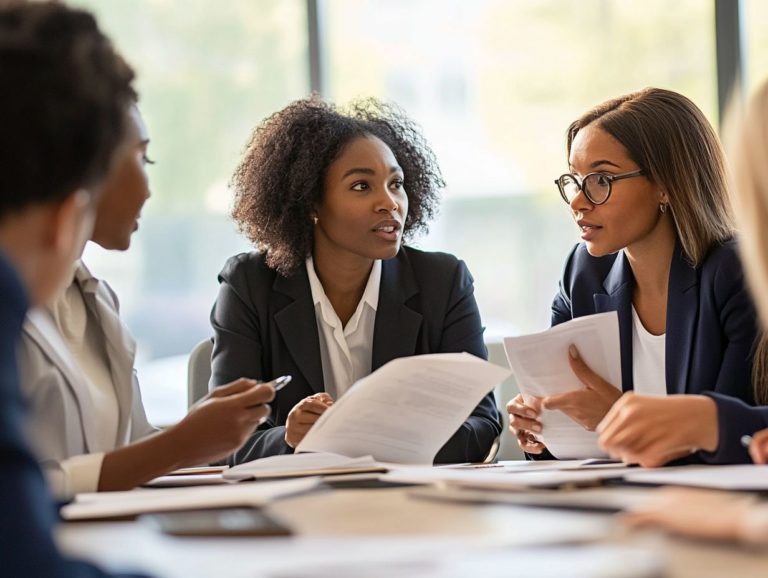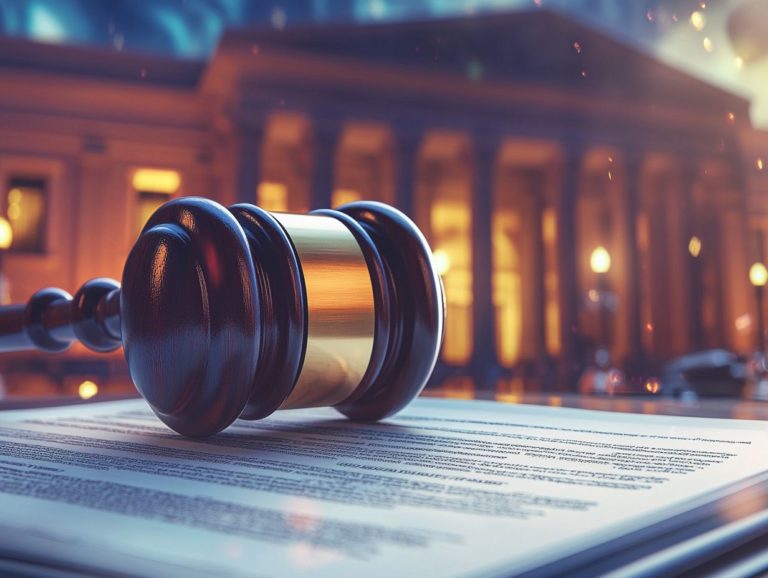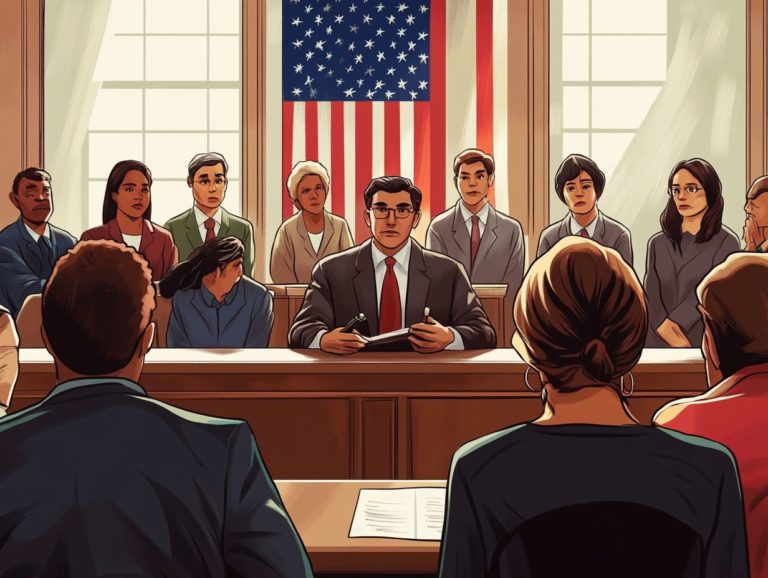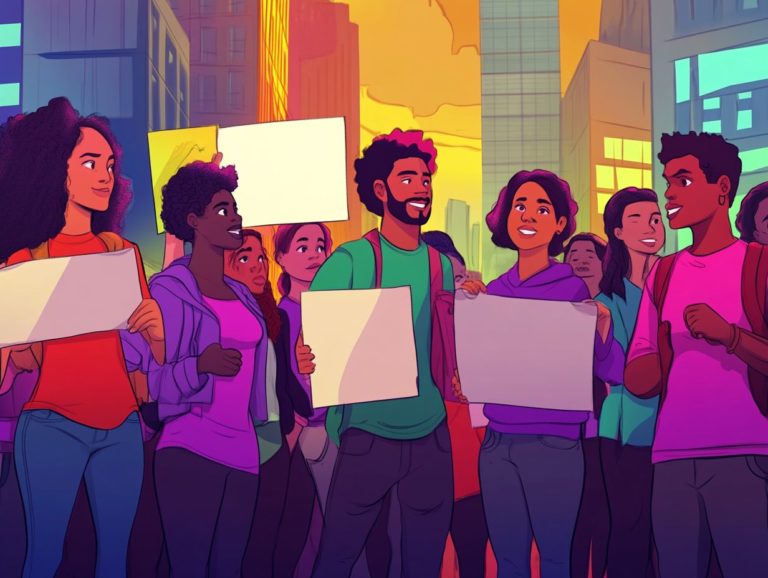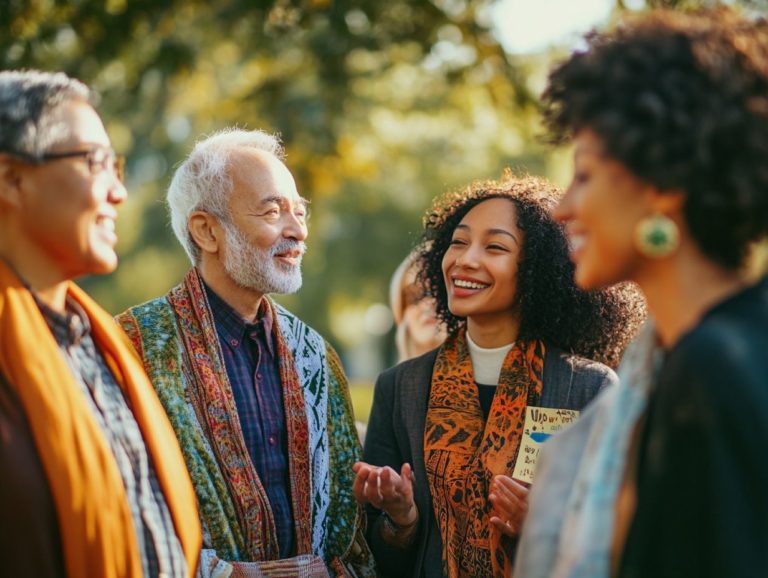The Importance of Educating Others About Rights
Human rights are the fundamental freedoms and protections to which you are inherently entitled, yet many remain unaware of their profound significance.
This article delves into what human rights are and why they matter. It highlights the crucial need for education in this vital area. By fostering awareness and empathy, you and your community can become powerful advocates for your rights and the rights of others.
You ll explore effective strategies for educating about rights, confront common challenges, and spotlight collaborative efforts that can drive meaningful change. Dive in to discover how you can actively contribute to promoting human rights awareness.
Contents
- Key Takeaways:
- Understanding Human Rights
- Why Educating Others About Rights is Crucial
- How to Educate Others About Rights
- Challenges and Solutions in Educating Others About Rights
- Frequently Asked Questions
- Cu les son los derechos fundamentales que todos deber an conocer?
- Por qu es importante conocer tus derechos?
- Empower Yourself: Know Your Rights!
- How Does Educating Others Lead to a Fairer Society?
- The Role of Schools in Teaching Rights
- How Can We Make Rights Education Accessible and Inclusive?
- Overcoming Challenges in Rights Education
Key Takeaways:
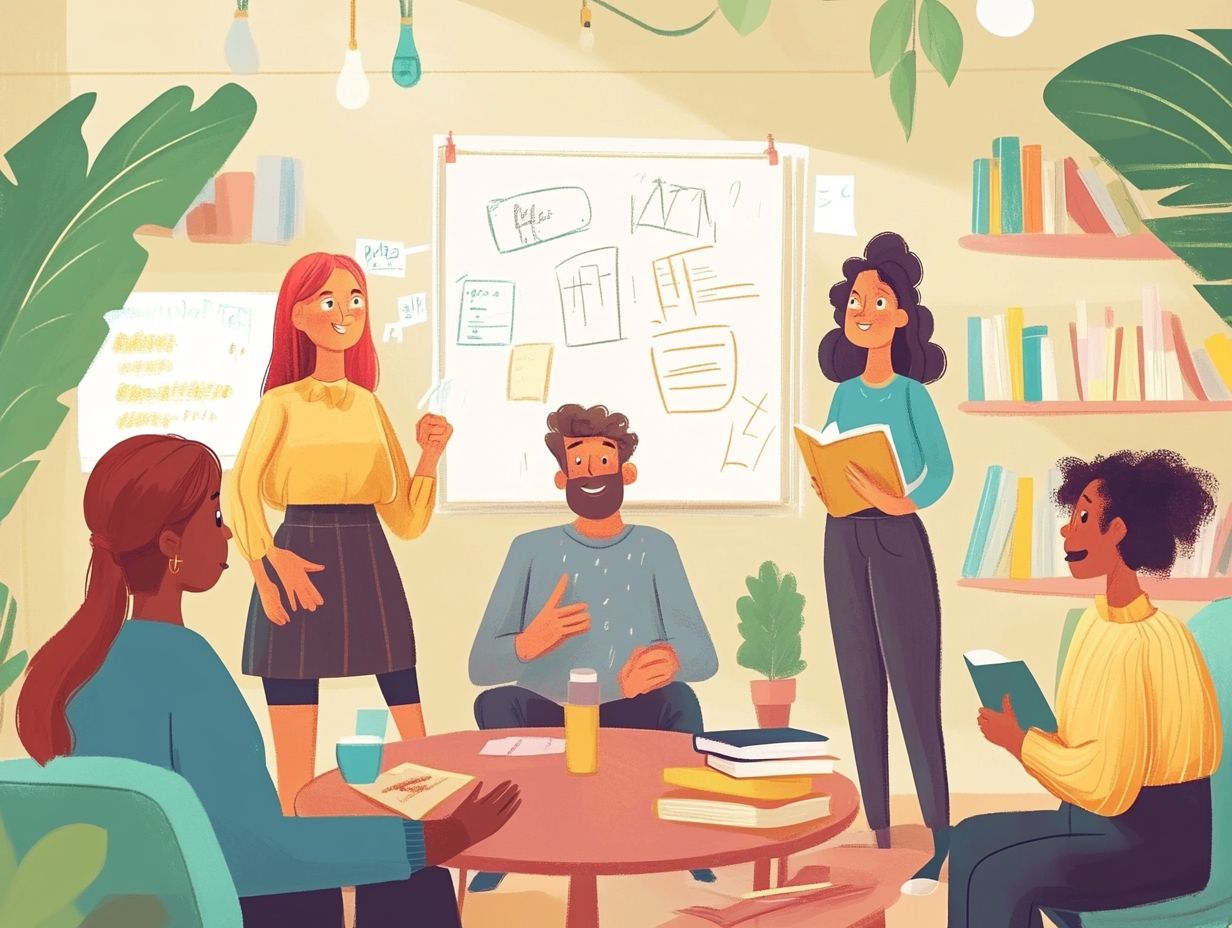
Educating others about human rights helps create awareness and empathy, promoting a more compassionate and just society.
Empowering individuals and communities with the knowledge of their rights fosters a culture of accountability and responsibility for protecting and promoting human rights.
Using clear communication and different platforms is key to educating others, and collaboration with organizations can help overcome barriers and resistance.
Understanding Human Rights
Understanding human rights is essential for creating a culture that respects everyone s dignity. It involves recognizing the principles of human rights set forth by esteemed organizations such as the United Nations and the Council of Europe.
By embracing historical perspectives and prioritizing education, you can cultivate knowledge and skills surrounding human rights. This ensures that everyone is informed of their rights and responsibilities as citizens within a diverse community.
What are Human Rights?
Human rights represent the fundamental rights and freedoms that are yours by virtue of being human, irrespective of nationality, gender, ethnicity, or religion. They promote fairness and respect for everyone.
These rights fall into distinct categories:
- Civil rights: Protect your individual freedoms, including the rights to free speech and assembly.
- Political rights: Give you the power to engage in the governance of your society think voting and running for office.
- Economic rights: Guarantee your right to work and to enjoy an adequate standard of living.
- Social rights: Ensure your access to essential services like education and healthcare.
- Cultural rights: Affirm your ability to partake in and contribute to your cultural heritage.
Foundational documents, such as the Universal Declaration of Human Rights adopted by the United Nations in 1948, articulate these essential rights. They emphasize that everyone is entitled to these freedoms without discrimination.
The Importance of Protecting and Promoting Human Rights
Protecting and promoting human rights is essential for fostering a society that values human dignity. By ensuring government accountability, you play a crucial role in preventing violations that undermine social justice.
When individuals are empowered to engage in their communities, the ripple effects can lead to significant improvements in social equity and justice. For example, the civil rights movement in the United States demonstrates how collective advocacy for human rights can transform society by dismantling systemic racism and promoting inclusivity.
Consider the impactful work of organizations like Amnesty International. Their successful campaigns for the release of political prisoners and efforts to highlight abuses illustrate the power of dedicated advocacy.
These examples show that safeguarding individual freedoms not only uplifts marginalized voices but also nurtures a shared sense of responsibility. Ultimately, this culminates in a more just and equitable society for everyone.
Why Educating Others About Rights is Crucial
Educating others about their rights is essential; it cultivates awareness and gives individuals the power to recognize and defend their rights.
This empowerment not only encourages active participation in social justice initiatives but also enhances understanding of global issues tied to human rights. By spreading knowledge, you contribute to a more informed and engaged society.
Join us in this important journey to protect human rights! Let s dive into the world of human rights together and make a difference!
Creating Awareness and Building Understanding
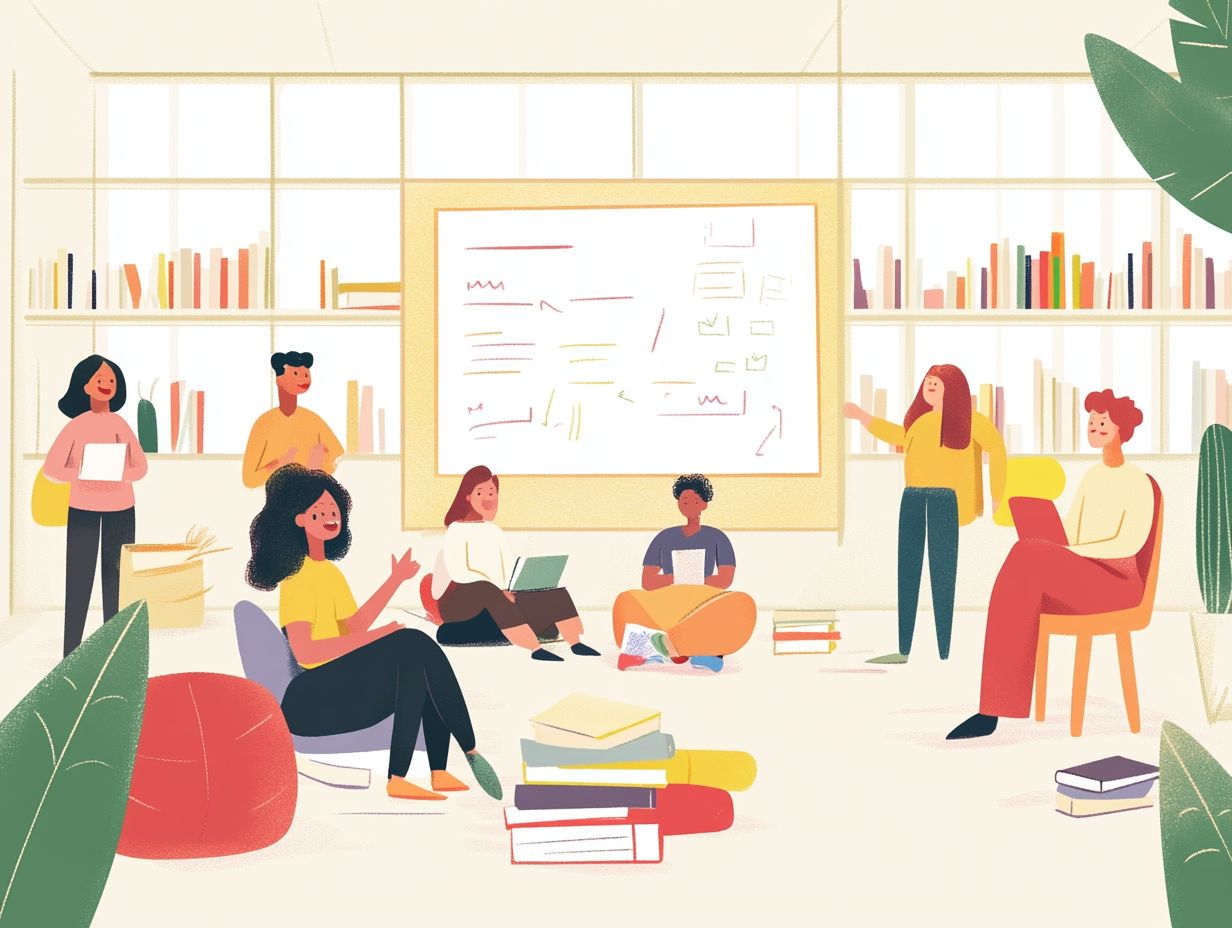
Creating awareness about human rights issues and building understanding are crucial in transforming attitudes and behaviors towards respecting diversity and individual rights.
To effectively achieve these goals, you can employ a variety of strategies. Educational programs that encourage critical thinking and engagement among participants are particularly effective.
Take, for example, initiatives like the ‘Youth for Human Rights’ program. It uses interactive workshops and multimedia resources to enlighten young people about their rights and responsibilities.
Storytelling is a powerful tool in this context. Personal narratives that highlight struggles and resilience often resonate deeply with individuals.
Engaging in community outreach activities, like local forums and exhibits, showcases the stories of marginalized groups. These actions foster greater understanding and empathy.
This ultimately leads to positive shifts in perceptions and attitudes towards human rights issues.
Empowering Individuals and Communities
Empowering individuals and communities is fundamental for encouraging active participation in human rights discussions. It influences decision-making processes and embraces the responsibility to uphold human dignity.
Through various empowerment strategies, local organizations and educational institutions play a vital role in this process. Programs like community-led workshops and awareness campaigns allow you to voice your concerns and contribute meaningfully to societal issues.
Initiatives such as “Know Your Rights” workshops equip individuals with essential knowledge about legal entitlements and human rights. This knowledge paves the way for advocacy and transformative change.
By fostering partnerships between schools and non-profits, mentorship programs can inspire youth to engage in civic activities. This effectively bridges the gap between education and community activism.
These collaborative efforts enhance awareness and instill a sense of responsibility, creating a more inclusive environment for everyone.
How to Educate Others About Rights
To effectively educate others about their rights, employ refined communication strategies and utilize comprehensive educational training materials. Integrating celebrations of cultural diversity into the human rights curriculum is also essential.
This approach enriches the learning experience and fosters a deeper understanding of the diverse perspectives that shape our world.
Effective Communication Strategies
Effective communication strategies are key in educating others about human rights! They promote respect and encourage participation in advocacy efforts.
These strategies encompass a diverse array of tools. From impactful social media campaigns to engaging community outreach programs, all are designed to raise awareness.
For example, the United Nations’ #StandUp4HumanRights campaign skillfully harnesses digital platforms to engage a global audience. It invites people to share their personal stories and experiences related to human rights violations.
Local organizations often host workshops and discussions that empower individuals with knowledge and inspire meaningful action. By blending traditional methods with innovative outreach, these initiatives cultivate a more informed and engaged community, ready to champion human rights causes.
Join a workshop today and empower yourself in understanding human rights!
Utilizando Diferentes Plataformas y Herramientas
Utilizar una variedad de plataformas y herramientas es fundamental en el sistema educativo. Esto permite involucrar eficazmente a diversas audiencias mientras se fomenta la cohesi n social a trav s de la educaci n en derechos humanos.
Las redes sociales son una v a atractiva para difundir informaci n. Permiten discusiones en tiempo real que re nen a los usuarios.
Los talleres y seminarios ofrecen experiencias pr cticas, invit ndote a profundizar en temas complejos y compartir narrativas personales que enriquecen la comprensi n.
Los materiales educativos y los cursos en l nea pueden cerrar brechas geogr ficas y proporcionar contenido accesible a cualquier persona con conexi n a internet.
Desaf os como la propagaci n de informaci n err nea pueden surgir en las plataformas sociales, as como los niveles variados de habilidad para usar tecnolog a entre las audiencias. Equilibrar la accesibilidad con contenido de alta calidad, mientras se fomenta un ambiente de aprendizaje inclusivo, sigue siendo esencial en tu b squeda de promover efectivamente los derechos humanos.
Challenges and Solutions in Educating Others About Rights
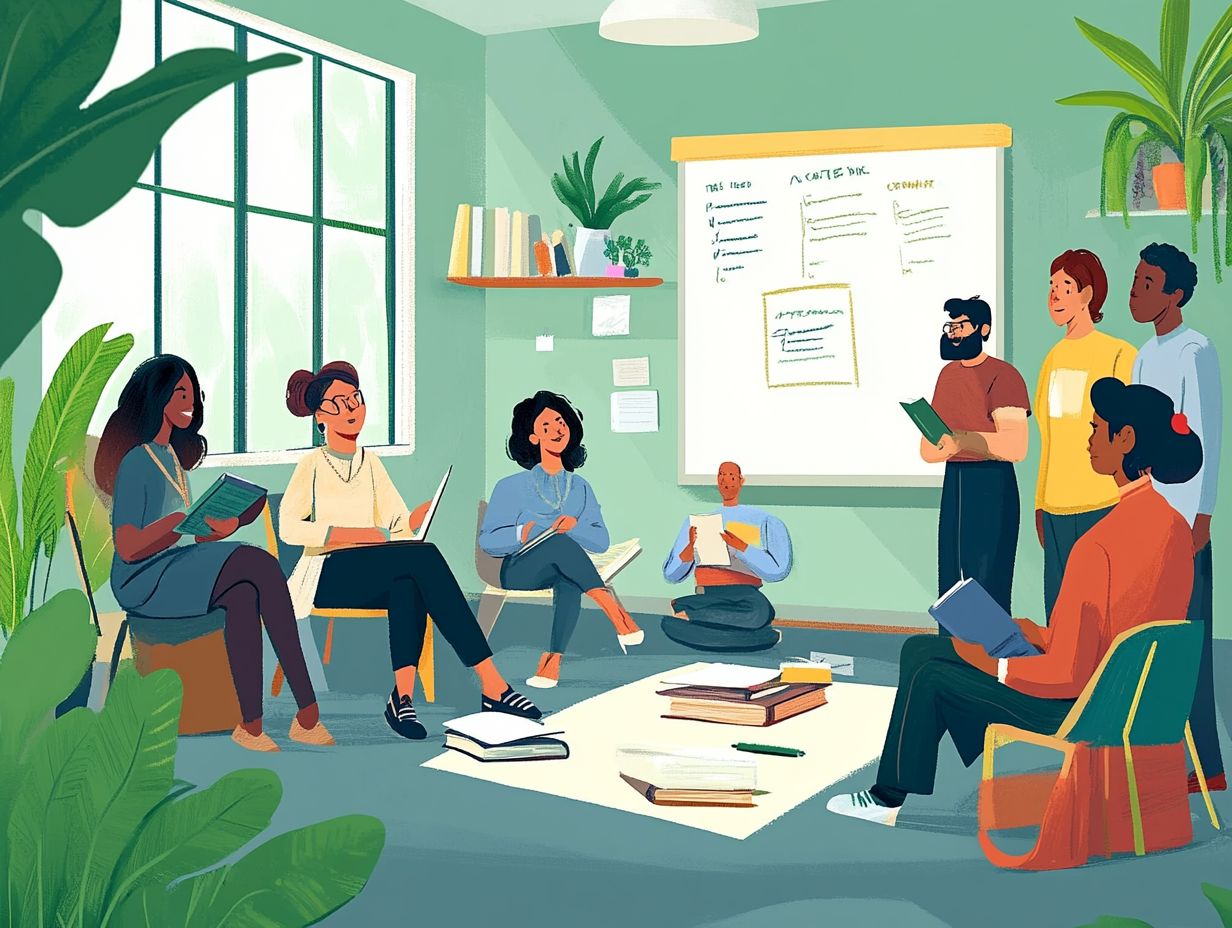
It’s crucial to educate others about their rights now more than ever, yet numerosos desaf os contin an afectando el sistema educativo y los esfuerzos de sensibilizaci n comunitaria.
Estos obst culos exigen soluciones efectivas para abordar genuinamente los problemas de derechos humanos y fomentar una sociedad m s equitativa.
Overcoming Barriers and Resistance
Superar barreras y resistencia en la educaci n sobre derechos humanos exige enfoques estrat gicos dentro de los marcos educativos que promueven la igualdad y la dignidad para todos.
Estos desaf os a menudo surgen de actitudes sociales profundamente arraigadas que pueden colocar la tradici n por encima del aprendizaje progresivo, as como de la resistencia institucional cuando las pol ticas educativas pasan por alto los derechos humanos como un tema central.
En reas donde las normas culturales desalientan las discusiones sobre la igualdad de g nero o los derechos LGBTQ+, puedes encontrar estudiantes que son desconocidos o incluso hostiles a estos conceptos.
Programas como la iniciativa ‘Teaching Respect’, que incorpora principios de derechos humanos en el contenido que se ense a, han navegado h bilmente estos obst culos, cultivando una atm sfera que fomenta el di logo abierto y la comprensi n.
Asimismo, el programa ‘Youth for Human Rights’ da poder a los estudiantes al educarlos sobre sus derechos a trav s de talleres interactivos y sensibilizaci n comunitaria, cerrando efectivamente las brechas en conocimiento y aceptaci n.
Collaborating with Organizations and Institutions
Colaborar con organizaciones e instituciones de derechos humanos es esencial para mejorar los marcos educativos y garantizar la responsabilidad gubernamental en abordar problemas de derechos humanos.
Estas asociaciones no solo amplifican las voces que abogan por la justicia, sino que tambi n inspiran estrategias de ense anza innovadoras que te equipan con el conocimiento que necesitas.
Toma iniciativas como la ‘Youth for Human Rights’ de las Naciones Unidas; han involucrado exitosamente a millones de j venes al conectar escuelas con ONG para crear curricula impactantes.
Los estudios de caso de varios pa ses muestran c mo las organizaciones locales, en asociaci n con universidades, han llevado a cabo talleres impulsados por la comunidad que efectivamente cambian las actitudes sociales hacia los derechos humanos.
Estos esfuerzos colaborativos cultivan un cambio generacional en la comprensi n y el compromiso, demostrando que trabajar juntos puede llevar a un progreso significativo en la educaci n sobre derechos humanos.
Frequently Asked Questions
Cu les son los derechos fundamentales que todos deber an conocer?
Algunos de los derechos fundamentales que todos deber an conocer incluyen el derecho a la vida, la libertad de expresi n, el derecho a la educaci n, el derecho a la igualdad y el derecho a un juicio justo. Estos derechos son esenciales para que las personas vivan una vida digna y ejerzan su libertad y decisiones.
Por qu es importante conocer tus derechos?
Conocer tus derechos es crucial, ya que te permite defenderte y participar activamente en la sociedad. Te empodera para exigir justicia y equidad.
nete a iniciativas locales para promover la educaci n sobre derechos humanos y marca la diferencia en tu comunidad.
Empower Yourself: Know Your Rights!
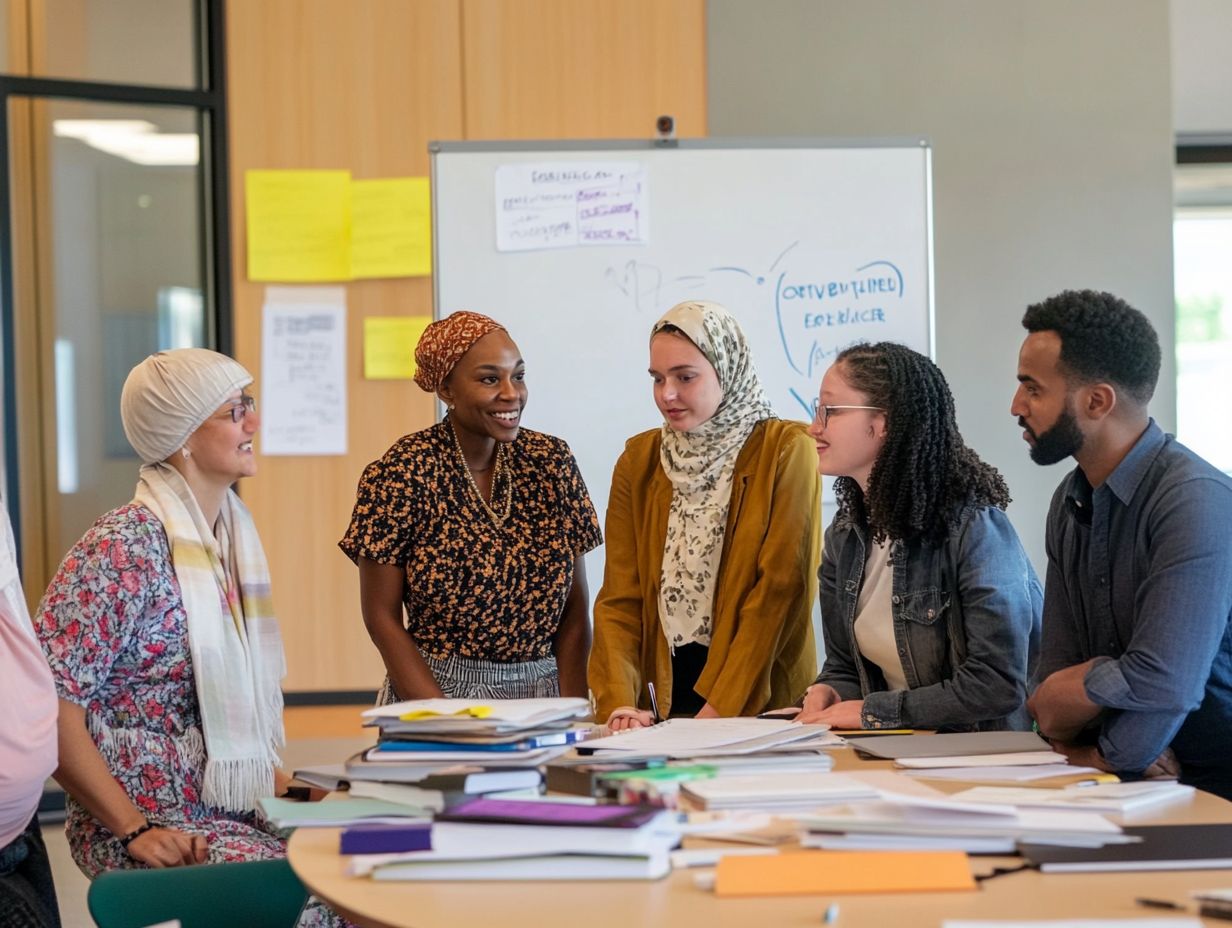
Educating others about their rights is crucial. It helps individuals stand up for themselves and demand justice.
When people are aware of their rights, they are less likely to be exploited or oppressed. They can then make informed decisions about their lives.
How Does Educating Others Lead to a Fairer Society?
Educating others leads to a fairer society. Awareness of rights helps fight discrimination and injustice.
It also fosters empathy and understanding, creating a more harmonious and inclusive community.
The Role of Schools in Teaching Rights
Schools play a key role in teaching rights. They promote respect, tolerance, and diversity.
By educating students about their rights from a young age, we can nurture a socially conscious generation.
How Can We Make Rights Education Accessible and Inclusive?
We can educate others by using various resources. Visual aids and real-life examples make learning engaging and effective.
Incorporating different languages ensures everyone can access this vital information.
Overcoming Challenges in Rights Education
Challenges like misinformation exist. Let s overcome these by using reliable sources and promoting open discussions!
We must connect with our audience and make the topic relevant to engage them meaningfully.
Join us in spreading knowledge about rights today!

